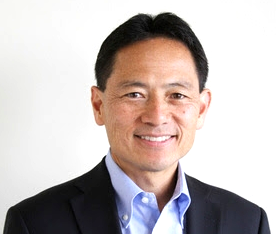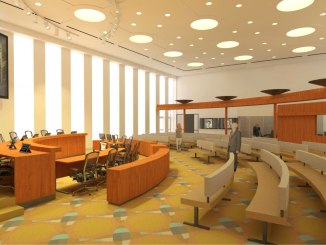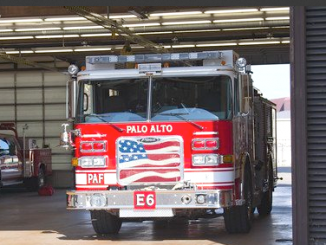
BY SARA TABIN
Daily Post Staff Writer
The city of Palo Alto canceled its nighttime curfew after getting a letter from the ACLU saying it exceeded the city’s authority and violated the First Amendment.
City Manager Ed Shikada, who imposed the curfew without a vote of City Council, admitted the curfew was too long but defended its purpose to the Post in an interview Thursday.
The curfew was supposed to last 10 days, the longest of any city in the Bay Area, but Shikada canceled it after two days following fierce criticism. He said in “hindsight” the curfew was too long but said the city’s intention was always to reevaluate the curfew each day. Shikada said he set it “conservatively” so he wouldn’t need to extend it. He said he consulted with City Attorney Molly Stump before setting the curfew.
Council members were in the dark on Wednesday about why Shikada had imposed the curfew. At Monday’s council meeting, there was a general discussion of curfews but no hint that 24 hours later the city manager would be shutting down the city from 8:30 p.m. to 5 a.m. for the next 10 days.
Mayor Adrian Fine said he didn’t know why the curfew was set to last 10 days and believed it was too long.
Former Mayor Pat Burt discovered that the authorization for the curfew came from an unrelated order for a shelter-in-place for the coronavirus.
‘A sweeping general ban’
Meanwhile, the ACLU warned Shikada and Jonsen that the city can’t lock down its residents.
“The order in its present form imposes a sweeping general ban on the public assembly, free expression in all public forums, and movement of nearly all of Palo Alto’s more than 67,000 residents from 8:30 p.m. to 5 a.m. and is neither authorized by state statutory law nor consistent with the freedoms guaranteed by the United States and California Constitutions — including the constitutional rights to freedom of speech, assembly, press and movement, and the most basic notice requirements,” said the letter from ACLU attorneys Shilpi Agarwal and Amy Gilbert.
Under the curfew, residents outside during those hours could be arrested and fined. Other local governments in the Bay Area including San Mateo County implemented curfews for a day or two to prevent rioting and looting, but no other jurisdiction imposed such a long curfew.
But the letter from the ACLU says the curfew was not narrowly focused on preventing crime and instead banned any public gathering including peaceful protests.
The ACLU said the city should punish crimes after they occur not prevent everyone from going outside because crimes might happen.
“The community’s right to protest day or night may not be infringed merely because some people act unlawfully in certain, limited areas of the city or in general throughout the Bay Area,” says the letter. “The order suggests its restrictions are lawful because law enforcement personnel have observed ‘scouting behavior’ around the Stanford Mall, criminal activity has occurred throughout the Bay Area, and ‘local and regional law enforcement intelligence-gathering suggests that planning is underway for additional organized criminal activity that could very quickly threaten harm to persons and property’… The Constitution squarely rejects this speculative approach to public safety restrictions on speech.”
Police chases and bystanders
Shikada told the Post that the curfew extended to residential areas because the city thought police might have to chase looters in cars. He said he didn’t want bystanders out on the streets where they might get caught in a dangerous situation if a police chase entered a neighborhood.
He said no one was arrested or fined under the curfew and it was never the city’s intent to actually arrest people, he said.
Burt, the former mayor and councilman, told the Post that Shikada drew his power for the order from the city’s COVID-19 emergency declaration. Burt said the looting concerns have no relation to COVID-19 so it doesn’t make sense that the COVID-19 order could allow Shikada to declare a curfew.
Shikada said the whole situation has presented itself as one continuous emergency that has been “fluid” from one issue to the next and that the city needs to keep responding to. When asked whether the idea is that COVID-19 caused the looting, Shikada said that wasn’t what he meant.
Burt also said the length and geographic scope of the curfew “grossly exceeded” the threat. Burt said the looting was a concern for commercial areas and didn’t warrant shutting down the whole city.
He said smash and grabs at stores are an issue that the city has faced for years. Burt said the threat sounded more like an escalation of those smash and grabs than a rioting problem.
The city’s plan to shut down California Ave. and University Ave. to open the streets for outdoor dining was postponed by the curfew.
Street closures could happen next week
Shikada said council on Monday will talk about closing the streets and depending on that the city might close them next Thursday.
He said the city has already started building two parklets, which turn parking spots into mini dining areas, as part of a pilot program for outdoor dining. One parklet is on University Ave. across the street from the Hotel President and the other is near the Palo Alto Creamery at 566 Emerson St.
Shikada said the city is also giving out permits for sidewalk dining to restaurants.




They got excited about imposing a curfew and took it to the extreme. Heads need to roll.
Thieves have been smashing and grabbing at Stanford Shopping Center and at Apple stores for years so his explanation does ring true. especially since he’s moving to cut community patrols so he can keep his huge city manager’s office staff and the $5,000,000 pr office.
Nobody likes cops until there’s a burglar is climbing through your window and you call 911.